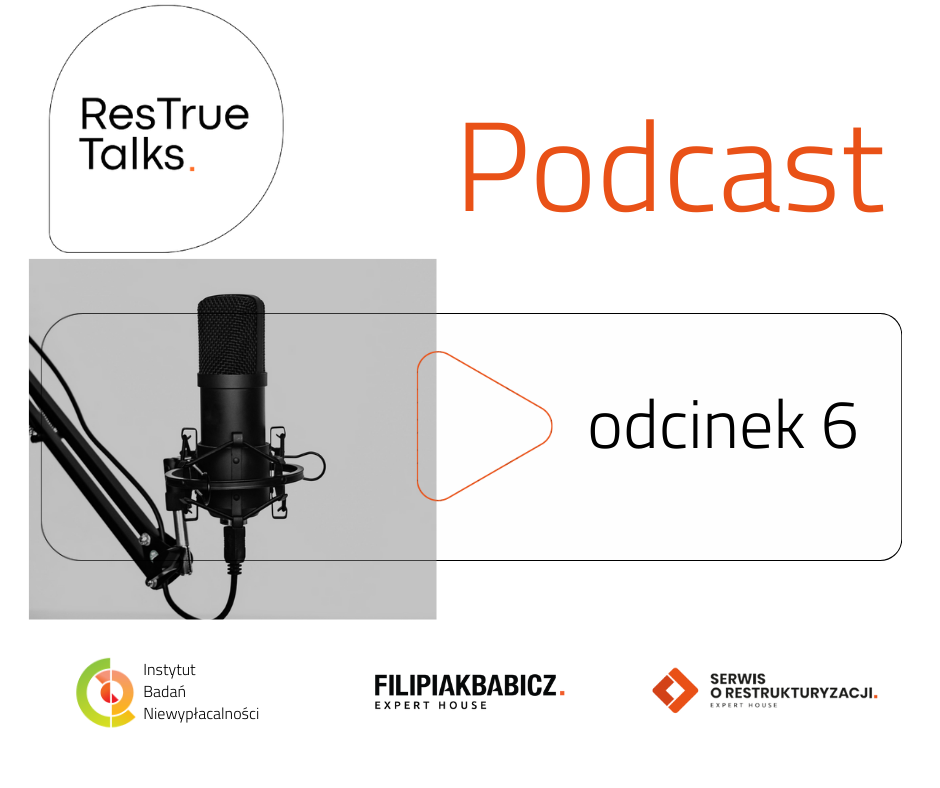
Exclusion of voting rights in restructuring proceedings

The importance of voting on the arrangement in the course of restructuring proceedings
Voting on the arrangement, carried out at the meeting of creditors or without it, is the culminating moment of each restructuring proceeding. The result of the vote determines the success of the entire company recovery process. Most importantly, a negative result of the vote (not accepting the arrangement) is an obligatory premise for discontinuing the restructuring proceedings. In the course of the proceedings, the debtor has, in principle, the right to conduct one vote on the arrangement (subject to the provisions of Articles 117 and 155 of the Restructuring Law) and to dissimilarities occurring in out-of-court proceedings (proceedings for approval of the arrangement).
Determining the circle of entities entitled to vote is therefore of key importance for the correctness of the procedure of voting on the arrangement. The restructuring law excludes some entities from this circle due to the existence of personal or capital ties with the debtor. The text below discusses examples of problems that may arise in the practice of applying Art. 116 of the PPR, containing a catalog of entities that the legislator refused the right to vote and actively influence the fate of the concluded agreement.
Nature of Article 116 R.L.A.
In accordance with the general rule, creditors with voting rights participate in the meeting, the object of which is to vote on the arrangement. According to the assumption of the legislator, claims of persons with personal or capital ties to the debtor should be treated as claims that require special attention, as it cannot be ruled out that the real motive for their appearance in the structure of liabilities could be the desire to influence the “arrangement arithmetic” and harm other creditors. Ratio legis of the exclusion of voting rights referred to in Art. 116 of the PRL, is therefore the elimination of the potential impact on the voting result of entities related to the debtor. The catalog of exclusions lists exceptions to the applicable rule (according to which all creditors have the right to vote on the arrangement), which means that, in accordance with the principle of exceptiones non sunt extendendae, its broad interpretation is not allowed.
In practice, managers or supervisors still encounter problems of interpretation when applying it. Some of them are described in this article.
Voting on behalf of companies in which the debtor is the owner of shares or stocks or acts as a member of the management board of the above-mentioned companies entities
As indicated, the restructuring law contains a closed catalog of cases in which it is necessary to exclude the creditor from voting due to the relationship between him and the debtor. However, this act only partially applies to voting on the arrangement in the case when the debtor is a natural person. According to Art. 116 sec. 1 p.r. in matters relating to the arrangement, a creditor who is the debtor’s spouse, relative or in-law in the direct line, relative or in-law in the collateral line up to and including the second degree, adopting or adopted by the debtor, has no voting right. Therefore, the legislator denies the right to vote in the course of voting on the arrangement of a natural person only to other natural persons related to the debtor due to family connections. However, it is easy to imagine and encountered in practice a situation where creditors in the course of restructuring proceedings are commercial law companies managed or owned by the debtor. None of the rules described in Article 116 of the however, it does not apply to such a case, so in my opinion, despite the obvious connection (voting in one’s own case), the administrator or supervisor will not be entitled to declare that such a creditor has been excluded from voting. Taking the above into account, a legitimate de lege ferenda postulate is to supplement the regulation of Art. 116 of the restructuring law on the above cases.
Investment fund in the capital structure of the debtor and the exclusion of voting rights
A situation often encountered in practice is also the presence in the capital structure of the debtor of investment funds, which are the owners of shares in the restructured entity. Article 116 of the GDPR containing a closed catalog of exclusions of entities that were deprived of the right to vote on the arrangement, it applies only to natural persons and commercial law companies. Thus, the regulation completely ignores the situation, which is often encountered in economic transactions, where the entity holding claims against the debtor is the investment fund (or other similar entity) financing it, often also the owner of part or all of the shares (shares) in the share capital. Despite this, the legislator, when constructing the hypothesis of the discussed article, omitted this type of entities.
The above means that also in this case, despite the obvious connection with the debtor, it will not be permissible to exclude the voting right of such a creditor. In my opinion, at this point another de lega ferenda postulate should be put forward to supplement the list of exclusions of voting rights also with investment funds.
Voting in groups – a group in which all creditors are deprived of voting rights
Another common situation encountered in the course of restructuring proceedings is the placement of non-voting creditors (pursuant to Art. 116 of the Commercial Companies Code) in a separate group to which the debtor submits an arrangement proposal, which (in a large part of cases) provides for a very high level of reduction of liabilities. The question whether it is permissible to create such a group should be answered in the affirmative. Therefore, in the event that none of the creditors has the right to vote (so the arrangement in this group is not accepted), is the administrator or supervisor under the obligation to simulate under Art. 119 sec. 3 p.r.? Should creditors gathered in a group in which none of them is entitled to vote be treated as listed in Art. 119 sec. 3 of the law, i.e. creditors from the group or groups that spoke against the adoption of the arrangement? All these questions, in my opinion, should be answered in the affirmative.
The supervisor or administrator should assess whether creditors excluded from voting will be satisfied under the arrangement to a degree no less favorable than in the case of bankruptcy proceedings. Comparison of the situation of creditors participating in restructuring proceedings with their position and the simulated level of satisfaction in the course of possible bankruptcy proceedings also makes it possible to refute any allegation of gross detriment to creditors, which may determine the refusal to approve the arrangement pursuant to Art. 165 sec. 2 p.r. This argument is all the more resonant due to the fact that these creditors did not have the opportunity to express their opinion against the arrangement due to the prohibitions of Art. 116 p.r.
Summary
Article 116 of the GDPR introduces an exception to the rule of granting voting rights to all creditors with claims arising before the date of opening the proceedings. However, there are numerous practical problems when using it. It also seems necessary to supplement or amend the above-mentioned article, so that it takes into account the most common cases of links between the participants in the proceedings.













